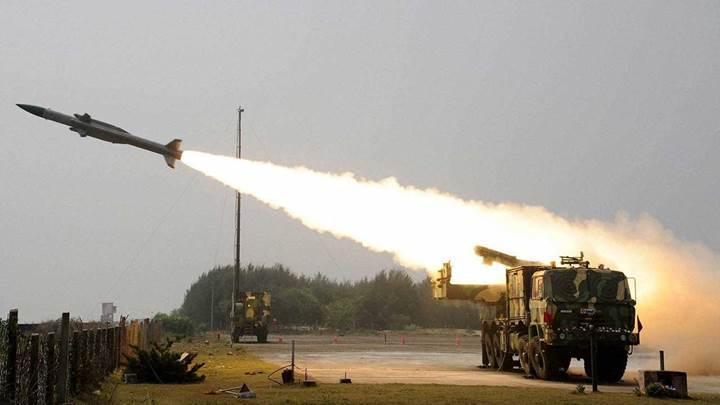Turkish servicemen to travel to Russia for S-400 training
MOSCOW

Turkish military personnel in charge of operating S-400 missile defense systems are set to arrive in Russia at the end of May, a Russian military source has said.
“At the end of May, around 100 Turkish servicemen will start training at a Russian military center to operate S-400 missile defense systems,” TASS Russian News Agency quoted the anonymous source as saying in a report on May 6.
The S-400 systems will be delivered to Turkey by Russia’s military equipment exporter, Rosoboronexport, by the end of the year, as scheduled, the source said.
Turkish military personnel, along with personnel from China, will receive training at a military center, according to the report.
“Simultaneous training of anti-aircraft gunners from China and Turkey will represent an unprecedented case in the history of [the] former [Soviet Union] and modern Russia,” the source told TASS.
F-35 partnership spat
The sale of S-400 systems by Russia to Turkey, as agreed in 2017, has created a rift between Turkey and the United States. U.S. officials criticize their old ally for endangering the F-35 fighter jet partnership between the United State, Turkey and seven other countries.
On several occasions, U.S. officials have stated the possibility of expelling Turkey from the F-35 partnership, while some U.S. senators have acted to block delivery of the state-of-the-art jets to the Turkish military.
Rejecting the U.S. objections, Ankara stresses the country’s immediate need for air defense systems and the reluctance of the NATO countries to sell the Patriot systems to Turkey.
Turkish Defense Minister Hulusi Akar on May 3 said that there is no article in the F-35 fighter jet partnership which could restrain Turkey from buying the S-400 anti-missile system from Russia.
“If Turkey is excluded from the partnership that would place very heavy financial, legal and logistical burdens on other partners, who probably will not be capable of bearing [it]. So I think all sides should be very careful and sensitive on this matter,” he said in an interview with a private Turkish broadcaster.
He also said the issue was discussed in recent talks with U.S. top officials.
The issue was on the top of the agenda in a phone conversation between Turkish presidential spokesperson İbrahım Kalın and U.S. National Security Advisor John Bolton on April 30, according to presidential sources.
















